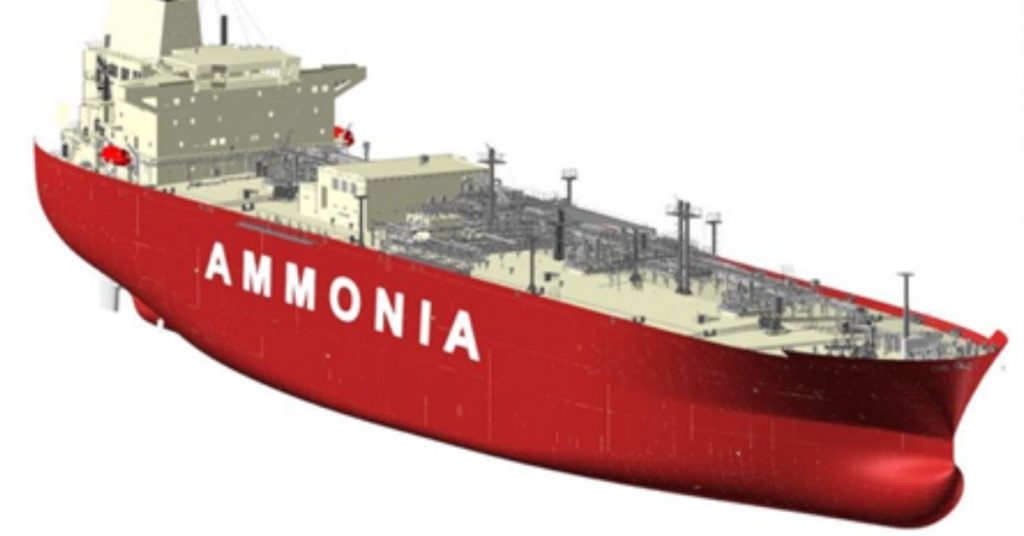The United Kingdom’s Maritime and Coastguard Agency (MCA) has published new guidance addressing the use of ammonia as a marine fuel, representing a significant advancement toward broader adoption of alternative fuels within the country’s shipping sector.
The newly released document outlines how shipowners can obtain approval for operating ammonia-fueled vessels. Approval would primarily be achieved through the International Maritime Organization’s (IMO) Alternative Design Arrangement (ADA)—a risk-based approach developed under the Safety of Life at Sea (SOLAS) Convention to identify and mitigate key operational hazards.
Currently, vessels over 500 gross tonnes carrying ammonia as cargo are regulated by the MCA under the IMO’s International Code for the Construction and Equipment of Ships Carrying Liquefied Gases in Bulk (IGC Code). For vessels below 500 GT, a case-by-case approval system is applied.
The MCA has collaborated closely with operators and classification societies to regulate ships using ammonia fuel under interim IMO guidelines associated with the International Code of Safety for Ships Using Gases or Other Low-flashpoint Fuels (IGF Code). In parallel, the agency is working alongside other IMO member states to refine these guidelines, with the intention of eventually integrating them into the IGF Code following a comprehensive review.
In its latest guidance, the MCA places clear responsibility on shipowners and operators to ensure that ammonia-fueled systems meet or exceed the safety standards of conventional systems. Owners are encouraged to undertake regular risk assessments, develop mitigation strategies, and submit detailed technical documentation for approval.
Additionally, the agency has emphasized the critical need for specialized crew training in handling ammonia. Crew training for alternative low-flashpoint fuels, including ammonia, currently falls under the IGF Code’s requirements set forth by the International Convention on Standards of Training, Certification and Watchkeeping for Seafarers (STCW).
To support workforce readiness, the MCA has been working with training providers to launch a methanol course for convention-sized vessels, with initial classes scheduled for mid-2025. Furthermore, basic training for ammonia handling will be formally introduced into the UK’s maritime education curriculum beginning in September 2025.
This development follows a February 2025 report published by Lloyd’s Register Maritime Decarbonisation Hub (Decarb Hub) and the Mærsk Mc-Kinney Møller Center for Zero Carbon Shipping (MMMCZCS). The report underlined the importance of ammonia as a future marine fuel while warning of the significant workforce challenges ahead.
Specifically, it highlighted the need to upskill approximately 800,000 seafarers to safely manage the unique risks posed by ammonia, including toxicity, flammability, explosion hazards, and material incompatibility.
To ensure a smooth transition, the MMMCZCS and Decarb Hub recommended that regulators and flag administrations revise training standards, shipowners implement internal safety reviews and policy upgrades, seafarers pursue advanced training opportunities, and training providers develop competency-based programs with practical safety exercises.
Tags: Ammonia, Marine Fuel, MCA, UK



Recent Posts
Chartered Speed expands its electric mobility footprint in Arunachal Pradesh
PSA International joins Global Centre For Maritime Decarbonisation as a strategic partner
MPA and NYK Group Advance Collaborative Efforts on Maritime Autonomous Surface Ship Trials
BIMCO drafts new clause to support biofuel use in time charters
Global Maritime experts attended India@Nor-Shipping – Maritime Partnership for a shared & sustainable future
India-Norway Dialogue Anchors on Sustainable Maritime Development
Sea cruise ships can now connect to shore power in Amsterdam
Corvus Energy partners with HD Hyundai Mipo for AiP on new green product tanker design.